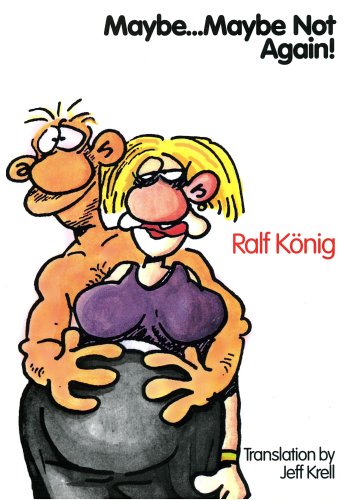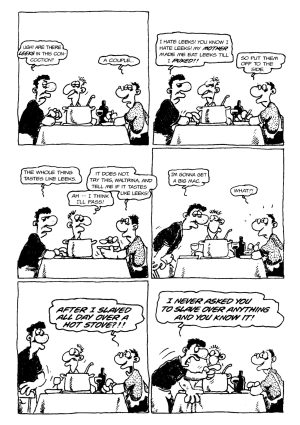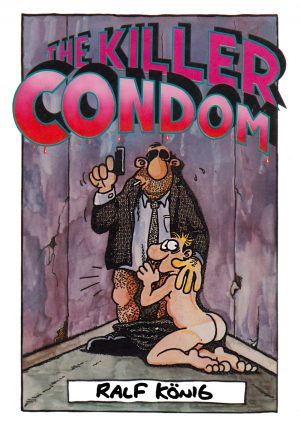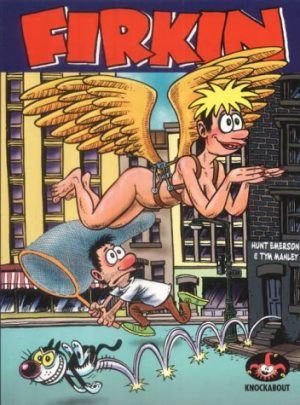Review by Frank Plowright
Maybe… Maybe Not remains a smart observational comedy centring on Axel, who becomes involved with the gay community after splitting up with his girlfriend. He becomes an object of desire while sending out mixed messages and never committing, and when his girlfriend reappears and announces she’s pregnant his explorations cease. Can Ralf König reprise the formula successfully?
Translator Jeff Krell’s introduction mentions that this is a modified version of König’s 1988 sequel, excising comments made about AIDS when still a relatively new phenomenon and not as understood. The reasoning is that it would be a shame if the focus was on what would now be considered offensive rather than the hilarious domestic comedy. It seems a practical solution.
König opens by amusingly referencing his own The Killer Condom as Waltrina visits his friend Norbert for a good gossip session before being joined by Norbert’s new husband. In a typically perverse way, and keeping Norbert’s disastrous relationship string going, König casts him as butcher in a slaughterhouse when Norbert is vegetarian. As the sample art shows, there’s predictable trouble in paradise. Not that Axel and Doro are doing any better. Axel’s wayward period still rankles with her, being nine months pregnant hardly helps with her patience and understanding, and their row plays out to the captivated audience of the neighbours through the wall.
Some sequels disappoint, but this is stronger. The plot is far tighter this time around, a farce worked out to the last detail that twists the knife, but still leaves time for riffing around themes during conversations. König mines gay culture for comedy moments, while also having a good handle on what straight guys will get up to given the opportunity. He returns all the primary characters from the first book, their lives satisfactorily progressed, and introduces a couple of new ones, the slimy Frank the most memorable while Elke in is more a spanner in the works.
For most of Again König’s cartooning is the same effective goofy style employed before, but a scene toward the end requires considerable finesse in conveying altered circumstances, and it’s joyously well achieved. Despite the predictability of everything leading to Doro’s birth scene it’s still beautifully played out, and it’s the capper on Again being a farce any broad minded adult should enjoy.





